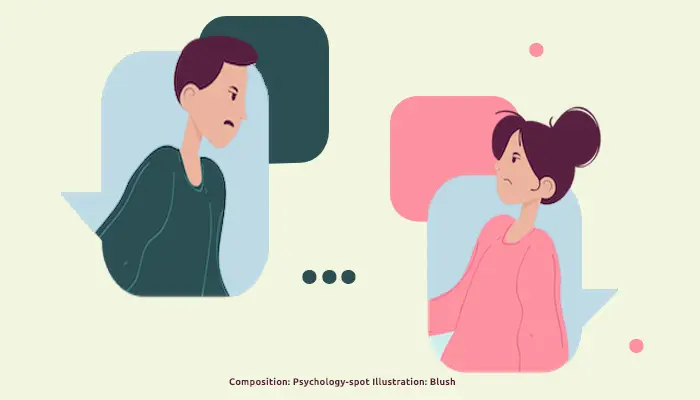
Interpersonal relationships are our greatest source of satisfaction, and also problems. Couple relationship, in particular, is a source of great joy and support in difficult times, but when it turns into an conflictual relationship generates great concern that, at the end, not only influence the psychological balance, but also our physical health, increasing the risk of developing serious diseases.
If your partner is happy you will be healthier
In 1858, an english epidemiologist named William Farr dedicated himself to study what he called the “marital status” of French. He divided the population into three categories: married, singles and widowers. Then he examined the archives where were recorded the dates of birth, death and marriage, and death rate. This way he came to the conclusion that, at least at that time, married people had a longer and healthier life.
Recently, some psychologists of Michigan State University published a study that summarized the results of six years of research. During that period were monitored 1,981 couples and was found that happiness of one of the two components of the pair was linked to the partner’s health. That is, if your partner is happy, you are more likely to enjoy good health.
Obviously, these are not the only studies that highlighted the relation between health and satisfaction in a relationship. In fact, it was also seen that, as a general rule, married people are less likely to be subjected to surgery, dying of cancer, and have a lower risk of suffering from dementia.
Surely, when we have a partner, especially if there is a good relationship, we receive more support and, of course, experience less stress because we share the problems. But the simple fact of having a partner doesn’t improve our health. More and more studies suggest that when the relationship is stormy and troubled, the psychological balance and health of the two will rapidly deteriorate.
When the couple relationship kills
Researchers at Michigan State University analyzed data from 1,200 people over the age of 50, taking into account indicators such as smoking and cholesterol levels, and also evaluated the quality of their marriage. This way they discovered that conflicts in a relationship were the antechamber of cardiovascular problems, in some cases it was a much more reliable predictor than smoking or cholesterol. It is interesting to note that women suffered more than men this negative effect. Therefore, it has come to say that couple conflicts can be much more harmful to the heart than smoking or having high cholesterol.
Several epidemiological studies also suggest that an unhappy marriage increases the risk of suffering from heart attacks and cardiovascular diseases. In fact, a study conducted with 300 Swedish women found that the risk of suffering of a heart attack is multiplied by 3 when there are marriage conflicts. It is noteworthy that stress generated by work doesn’t represent such a health risk.
Why marital conflicts are so harmful? What is their impact on the body?
For the answer, we must go back to a series of studies conducted by researchers at Ohio State University. One of them involved 76 women, half of them married and the other half divorced or in the process of separating. Through blood tests, it was discovered that those who continued to endure a difficult relationship or were emotionally tied to a complicated relationship, showed a weaker immune system response.
These researchers have gone a step further to find out what happens in the body during a fight with your partner. To do this they recruited 42 married couples seemingly happy. The experiment was conducted in two stages, the first day the couple spoke for half an hour of arguments that stimulated support attitudes. Another day they talked about issues that generate tensions and conflicts. While they were talking it was used a special device to generate small blisters on their arms.
The goal was to see if support or misunderstanding affect the recovery time. And so it happened. When couples argued, they needed an extra day to heal the wounds, compared to those generated during a pleasant conversation. In addition, the wounds of some couples who showed particularly high levels of hostility while discussing, needed two days longer to heal.
These data suggest that stress we experience during a couple discussion can be very high, ending up generating a series of changes in our body that, if maintained for long time, will cost us a lot, physically and psychologically.
Sources:
Chopik, W. J. & O’Brien, E. (2016) Happy You, Healthy Me? Having a Happy Partner Is Independently Associated With Better Health in Oneself. Health Psychology.
Kielcot-Glaser, J. K. et. Al. (2005) Hostile marital interactions, proinflammatory cytokine production, and wound healing. Arch Gen Psychiatry; 62(12): 1377-1384.
Liu, H. & Waite, L. (2014) Bad Marriage, Broken Heart? Age and Gender Differences in the Link between Marital Quality and Cardiovascular Risks among Older Adults. Journal of Health and Social Behavior; 55(4): 403-423.
Orth, K. et. Al. (2000) Marital Stress Worsens Prognosis in Women With Coronary Heart DiseaseThe Stockholm Female Coronary Risk Study. The Journal of the American Medical Association; 284(23): 3008-3014.



